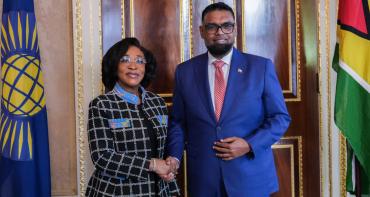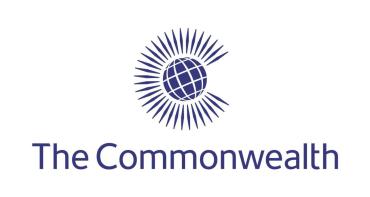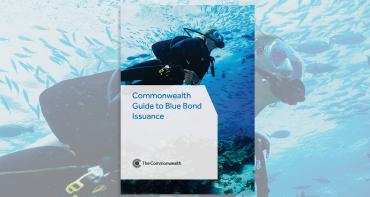Othniel Yila is an experienced climate finance practitioner. As the Commonwealth National Climate Finance Adviser for Zambia, he has helped the government secure at least US$21.7 million in climate financing for the country and built the capacity of 130 government officials to tackle climate change.
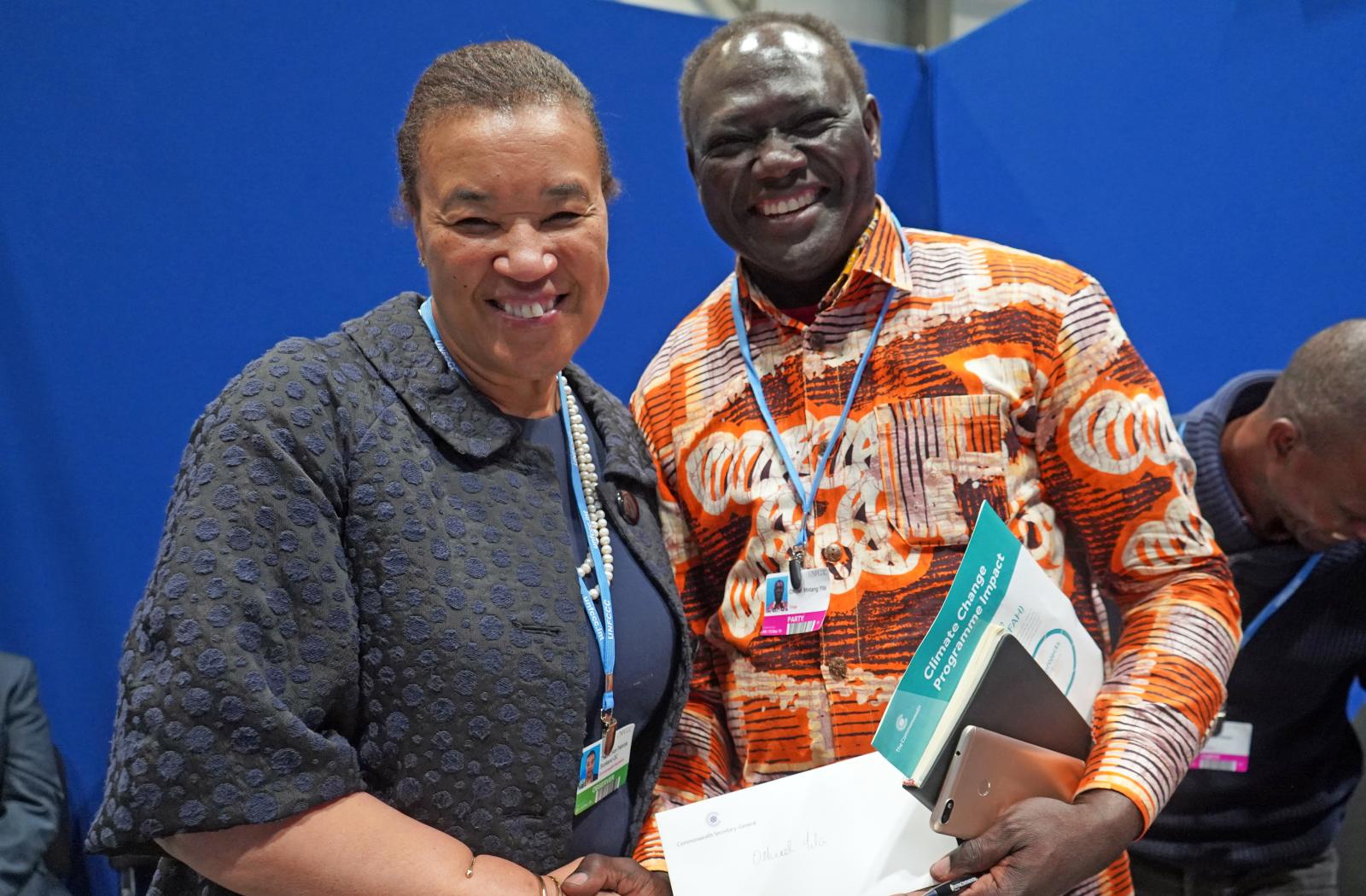
Tell us a little about yourself and how you came to work in Zambia with Commonwealth Climate Finance Access Hub (CCFAH)?
One could say I was there right from the very beginning. Prior to joining in April 2018, I was one of the Stockholm Environment Institute (SEI) Experts commissioned by the Commonwealth Secretariat in 2014 to undertake the design of a ‘Commonwealth Climate Finance Skills Hub and Response Mechanism’.
This report was endorsed by Commonwealth Heads of Government in November 2015, which led to the establishment of the Commonwealth Climate Finance Access Hub (CCFAH) in 2016. For me, being part of CCFAH is 'walking the talk' that we outlined in the comprehensive report on the operationalisation of the Hub.
I was first assigned as the Commonwealth National Climate Finance Adviser for the Kingdom of Tonga in the Pacific Islands. In 2020, I requested reassignment from Tonga to Africa, as Tonga is 13 hours ahead of my home country, Mali, and over 33 flying hours to Bamako, where my family lived.
Coincidentally, at the time there was an opening in Zambia, so I applied so I could be closer to home. However, it was bittersweet for me to leave the 'friendly islands', as Tonga is also called, because of what we achieved and the warmth and friendship of the people.
Being the most senior adviser in the CCFAH family, how have you contributed to these countries and the overall capacity-building efforts of CCFAH?
I have ensured climate action is designed to meet different people’s needs, including vulnerable groups. Examples include reforming the Outer Islands Solar Electrification Society and People Living with Disabilities projects in Tonga, as well as the youth-focused Zambian Education Programme for Climate Action (ZEPCA).
Through CCFAH, I supported the development of Zambia’s NDC Implementation Framework - a costed blueprint for mitigation and adaptation action over the next seven years. It was launched in May 2023,with support from the NDC Partnership Climate Action Enhancement Package. This powerful tool will help translate Zambia’s climate commitments into action, offering a centralised framework for coordination and resource mobilisation.
I also delivered two landmark reports on climate finance mapping and monitoring, reporting and verification. These works have set standards for Zambia, in addition to serving as a comprehensive knowledge base for stakeholders. I’m also pleased that the Toolkit to Enhance Access to Climate Finance, which I contributed to, is now being developed into an e-learning course.
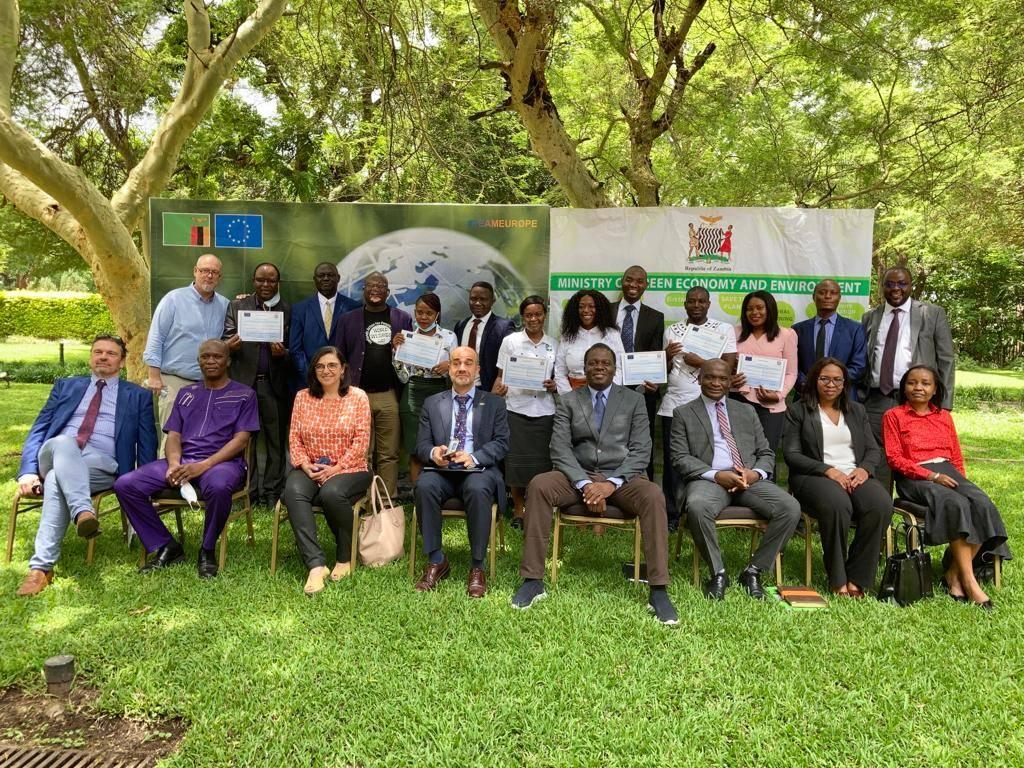
You have also been appointed by the Government of Zambia to the Green and Climate Finance Advisory Committee. Can you tell us more?
My appointment to the Climate and Green Finance Advisory Committee (CGFAC) exemplifies how highly CCFAH’s work is valued by Zambia and that they value the expertise I brought to the table.
The CGFAC aims to provide strategic insight into the ongoing development of Zambia's sustainable finance and climate risk-related activities. It also advises on the prioritisation of initiatives and further development and implementation of sustainable climate finance goals.
Zambia is at the forefront of the adoption of the Commonwealth Living Lands Charter: A Call to Action on Living Lands (CALL). Why is it important for Africa?
Zambia made significant contributions to reviewing the draft Commonwealth CALL, and co-hosted a Joint-Side Event with the Commonwealth Secretariat at the UN Climate Change Conference COP26 in Glasgow, to showcase this initiative.
Since then, Zambia has been forthright in its commitment as a Commonwealth CALL Champion, supporting integrated and accelerated actions to address biodiversity loss, land degradation and climate change on lands across Zambia and Africa. These are targets set under the three Rio conventions: the UNFCCC, UNCCD and CBD, and there are ample opportunities to do all this with thoughtful nature-based solutions.
With my support, Zambia also co-hosted a Joint Side Event at the UNCCD-COP15 in Abidjan last year, alongside the Commonwealth, WWF and AUDA-NEPAD on financing for forest landscape restoration.
Given your vast experience over the years, what are three key lessons learned in building capacity to access finance?
-
Work with natural allies first and gain traction: It is essential to have a clear map of those actors that can serve as an initiative's potential partners and to classify their disposition level. Their goals, interests and needs should be naturally aligned with the initiative. Eventually, any reluctant actors will turn into allies when they see the results.
-
Align climate actions with target sector priorities and speak their “language”: For climate finance mobilisation to be sustainable, it is essential that the mechanisms implemented actually respond to the actors' needs. If both their agendas and their expected return on investment are considered, the continuity of the mechanism will then entirely be based on their voluntary participation instead of external pressure.
-
Promote the ownership of mechanisms: Whether public or private, stakeholder involvement during all stages of an initiative should favour a sense of ownership and permanence.
Learn more about the Commonwealth Climate Finance Access Hub
Media contact
- Josephine Latu-Sanft Senior Communications Officer, Communications Division, Commonwealth Secretariat
- +44 20 7747 6476 | E-mail

